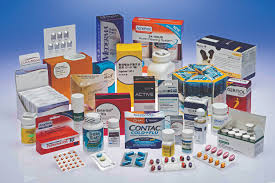Effective supply chain will establish a strong road map to achieving Universal Health Coverage
Quality and affordable medicines is key in achieving Universal Health Coverage. However in Kenya the prices of medication is very high thus putting patients with Non Communicable Diseases especially Diabetes and Hypertension in financial hardship and others are not able to keep up with the medication leading to more complications.
It has also been noted that there is importation of illicit drugs and the government should be very keen in curbing this. How can the private sector contribute in improving the quality of medication and ensuring the medication is affordable?
Kenya Healthcare Federation (KHF) supply chain committee held it’s quarterly meeting on 28th August 2018 at KHF offices. The meeting was chaired by the committee chair Dr. William Mwatu. Supply chain falls in two of the president’s BIG 4 Agenda that is manufacturing and affordable healthcare. The supply chain committee has been pushing for the support of local manufacturers this makes the medicines affordable.
“What are the reasons that support parallel importation and what are the impact? One of the major reason is to make profit but this has a negative impact on patients safety” Dr. Peter Kamunyo, Director Kenya Healthcare Federation. “When it comes to the supply of medication, the private sector should use Public Private Partnership (PPP) as a channel to advocate for the pharmaceutical regulatories to operate within the law.” Dr. Anastacia Nyalita, Director.

There was a consensus on developing a unique identifier and best coding mechanism, for example each drug pack should contain original details so that when a patient uses the code to search on the details of the pack , they should be able to get them. “Therefore the supply chain should use PPP as a channel to advocate for this.” Dr. William Mwatu Supply Chain Committee Chair.
Recently, the Pharmacy and Poison Board (PPB) of Kenya made a bold decision to address what maybe the local pharmaceutical industry’s most controversial issue, ‘Parallel Importation of pharmaceutical products. There has been few attempts made to tackle this but not be successful, however PPB hopes that the current attempt will be successful through considering all important aspects in order to build a consensus among all interested parties in coming up with a policy position that is not only widely acceptable but also addresses most of the contentious issues once and for all.
The key issues to consider is create more incentives towards local manufacturing, change perspective and strategize on how to marketing for local products. A consideration should be put on what percentage off is to be given to the local manufacturer to give value addition. The main aim of reducing the cost is to increase on accessibility and not maximize profit. The committee will be pushing for implementation of the guideline draft act by pharmacy and poisons Board (PPB) Dr. William Mwatu was re-elected as the committee chair and Mr. Chris Masila was elected as the committee vice Chair.
